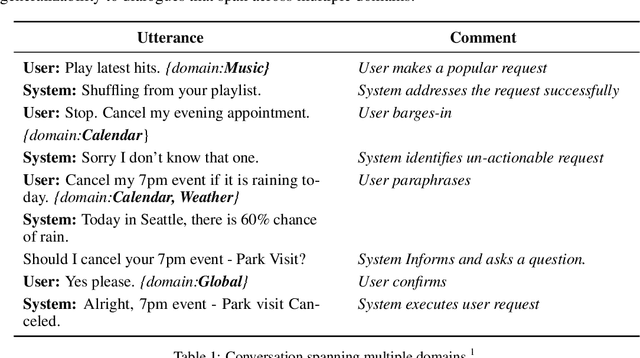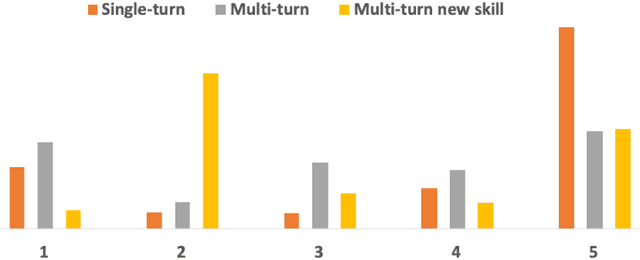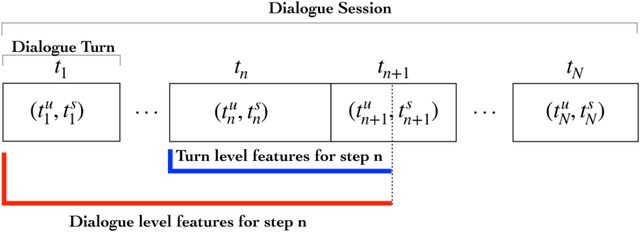Multi-domain Conversation Quality Evaluation via User Satisfaction Estimation
Paper and Code
Nov 18, 2019



An automated metric to evaluate dialogue quality is vital for optimizing data driven dialogue management. The common approach of relying on explicit user feedback during a conversation is intrusive and sparse. Current models to estimate user satisfaction use limited feature sets and employ annotation schemes with limited generalizability to conversations spanning multiple domains. To address these gaps, we created a new Response Quality annotation scheme, introduced five new domain-independent feature sets and experimented with six machine learning models to estimate User Satisfaction at both turn and dialogue level. Response Quality ratings achieved significantly high correlation (0.76) with explicit turn-level user ratings. Using the new feature sets we introduced, Gradient Boosting Regression model achieved best (rating [1-5]) prediction performance on 26 seen (linear correlation ~0.79) and one new multi-turn domain (linear correlation 0.67). We observed a 16% relative improvement (68% -> 79%) in binary ("satisfactory/dissatisfactory") class prediction accuracy of a domain-independent dialogue-level satisfaction estimation model after including predicted turn-level satisfaction ratings as features.
 Add to Chrome
Add to Chrome Add to Firefox
Add to Firefox Add to Edge
Add to Edge